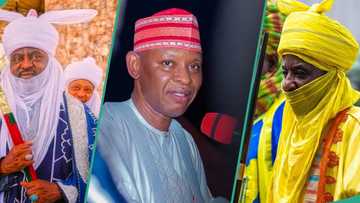Kano Emirate Tussle: 5 Key Points from Court Ruling Which Reinstated Emir Bayero
Legit.ng journalist Bada Yusuf is an accomplished politics and current affairs editor, boasting over seven years of experience in journalism and writing.
The federal high court in Kano has voided Muhammadu Sanusi II's reappointment as the 16th Emir of Kano on Thursday, June 20.
The court, which was presided over by Justice Abdullahi Muhammad Liman, nullified all the actions taken after the reinstatement.
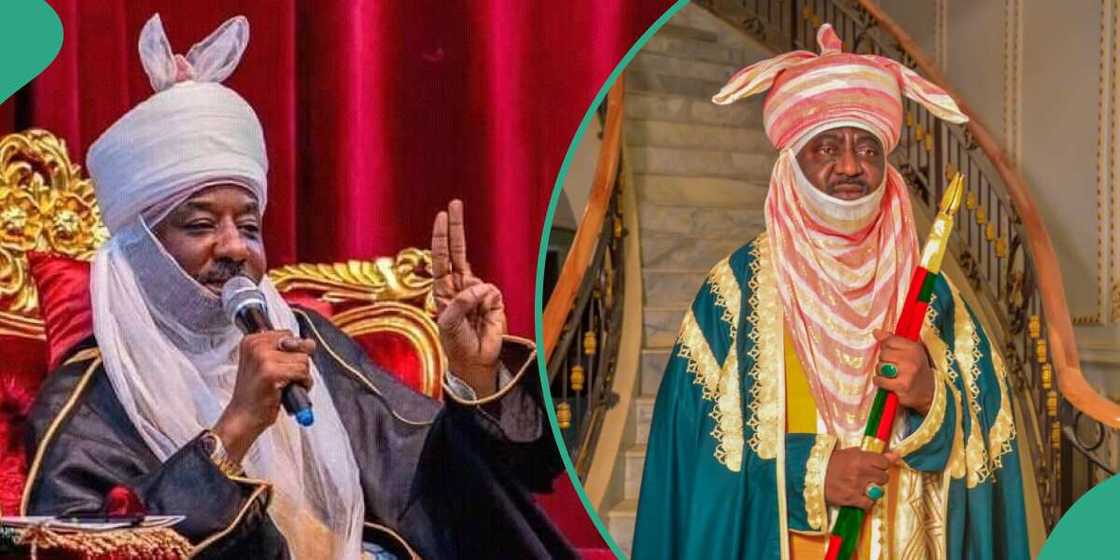
Source: Facebook
However, there are key points in the judgment that you need to know. Legit.ng highlights some of them below:
Court overturns Kano state government actions
In his ruling, Justice Liman overturned Governor Abba Yusuf of Kano's action. The governor had deposed the 15th Emir Aminu Ado Bayero and reinstated Muhammadu Sanusi II.
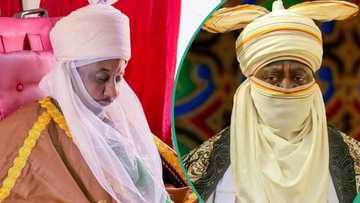
Read also
Emirate tussle: Kano govt takes decision as court sacks Sanusi, quashes Bayero's dethronement
The governor's action followed the signing of the Kano Emirate Council Repeal Law 2024 into law.
The law repealed the existing law that divided the Kano emirate into five and appointed Bayero during the administration of Abdullahi Ganduje in the state.
Based on the new law, the 14th Emir of Kano, Muhammadu Sanusi II, deposed by Ganduje in 2020, was reappointed and reinstated by Governor Yusuf.
Legal challenge by Aminu Babba Danagundi
Aminu Babba Danagundi, a kingmaker in the former Kano emirate, challenged the legality of the repealed law through his counsel, Chikaosolu Ojukwu (SAN).
Danagundu's move was in favour of the deposed Ado Bayero, and the court judgment was in their favour as they await the higher court's judgement.
Court ruling and future proceedings
Justice Abdullahi Muhammad Liman ruled in favour of Danagundi, setting aside the actions of the Kano government and ordering parties to maintain the status quo.
The judge warned of coercive measures to enforce compliance and transferred the case to Justice Simon Amobeda due to his elevation to the Court of Appeal.
What does maintaining the status quo mean?
Maintaining the status quo in this judgment means that all parties involved in the case, including the applicant and defendants, should await the ruling of the Court of Appeal.
On Wednesday, June 19, the Kano state house of assembly alleged bias in the court proceedings and asked the Court of Appeal to stay the proceedings at the Federal High Court until the appeal court gave its judgment.
Who are the parties in the case?
Aside from the deposed Emir Bayero and the reinstated Sanusi II, who are prominent in the suit filed by Danagundi, there are other parties involved, particularly the respondents.
In the suit, the respondents are the government of Kano state, the Kano house of assembly, the speaker of the house, the state's attorney general and the commissioner for justice, the police commissioner in the state, the inspector general of police, the Directorate of State Security (DSS), and the Nigeria Security and Civil Defence Corps (NSCDC).
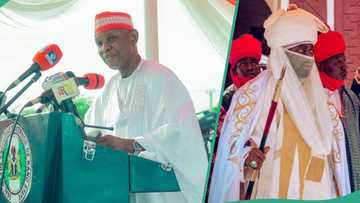
Read also
Kano royal tussle: Mixed reactions as Gov Yusuf allegedly mobilises to demolish Bayero's palace
Is federal higher than state high court?
Legit.ng earlier probed social media claims that the federal high court is above any state high court.
This followed conflicting court orders on the royal tussle between Emir Aminu Ado Bayero and Muhammadu Sanusi II.
Wale Adeagbo, a legal practitioner, who spoke with Legit.ng, said the constitution did not place one above the other and advised the way forward.
Tinubu urged to avoid Kano politics
Legit.ng also previously reported that President Bola Tinubu was urged to refrain from interfering in Kano politics because doing so could ruin his presidency.
Buba Galadima, an elder statesman, who advised the president said actors don't usually agree on issues regarding Kano politics.
Galadima's statement came days after NNPP national leader Rabiu Kwankwaso accused the federal government of listening to Kano enemies on the rift between dethroned Bayero and reinstated Sanusi.
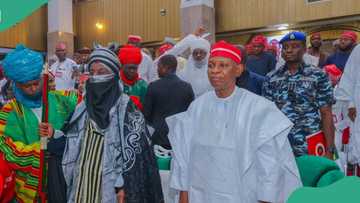
Read also
BREAKING: Kano Gov Yusuf insists “Sanusi remains Emir”, orders police to evict Bayero from palace
Proofreading by James Ojo Adakole, journalist and copy editor at Legit.ng.
PAY ATTENTION: Stay Informed and follow us on Google News!
Source: Legit.ng


